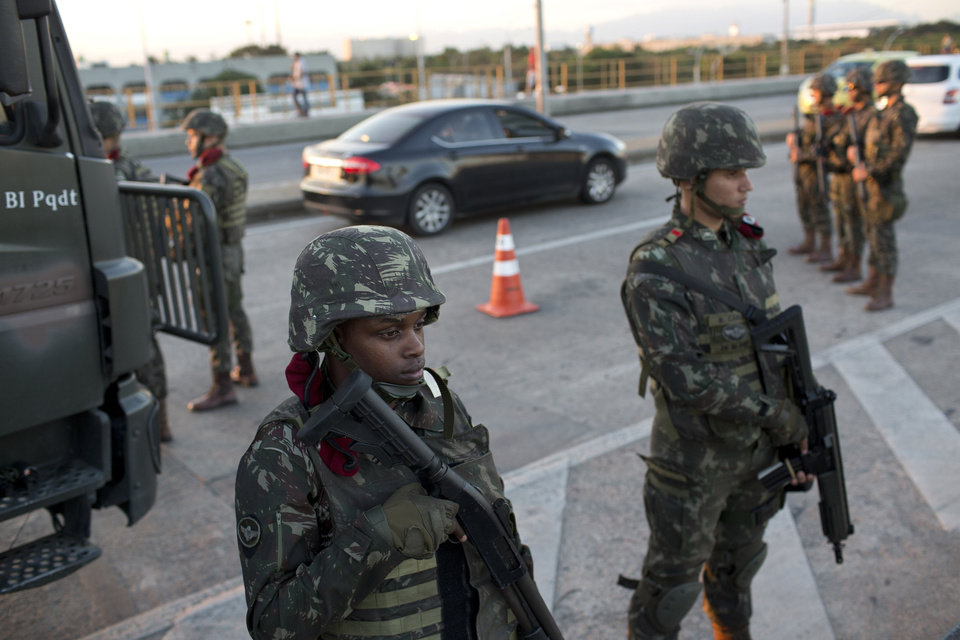Brazilian troops and police launched on Saturday an operation against gangs in the slums in Rio de Janeiro in an attempt to crackdown on mounting crime.
Their main goal was to stop gangs behind a surge in brazen robberies of commercial trucks.
Five favelas were targeted by the heavily-armed combined forces in a swoop that started in the small hours, the Rio state security service said in a statement.
Officials said the favelas were Lins, Camarista Meier, Morros de Sao Joao and Engenho Novo in the north and Covanca in the west.
Brazil’s Globo television showed footage of soldiers in camouflage searching residents in the favelas and driving down streets in armored personnel carriers.
“The armed forces are responsible for the perimeters in some of these regions and based at strategic points,” the state security service said. “Some roads are blocked and the airspace is restricted to civilian flights over the sectors where the armed forces are operating.”
Rio’s airports, however, were not affected.
Official data shows murders in Rio de Janeiro state rose 14 percent to 3,755 in the first half of 2017 from a year earlier. The number of people killed by Rio’s police, long criticized for their tactics, spiked more than 45 percent to 581.
The big crackdown on Rio’s heavily armed criminal gangs came exactly a year after President Michel Temer opened the Olympics.
Rio was the first South American city to host the Games and although the event passed off smoothly, a mixture of corruption scandals, near collapse in the budget and crime has combined into a serious hangover for what should be one of Brazil’s richest regions.
Escalating violence, fueled by a deep economic crisis and a shrinking state budget, shows how far Rio has fallen since international athletes flocked to its stadiums, many now vacant, in August 2016. Growing allegations of graft involving Olympic projects are also tarnishing memories of the Games.
“We see clearly that the Olympic promise of a safe city has not been fulfilled,” Amnesty International research coordinator Renata Neder said at an event on Thursday. “Public safety in Rio de Janeiro has deteriorated dramatically.”
The situation is a stark reversal of gains made after police began a “pacification” program in 2008 for some of the city’s more than 1,000 slums.
Police pushed drug gangs out of those favelas, where they held sway with impunity for decades, and then set up permanent posts in the communities for the first time.
That program was meant to increase security in Rio ahead of the 2014 World Cup and last year’s Olympics, and it temporarily succeeded in doing that.
But the economic crisis dried up funding to expand the program, and critics say the government did not make good on promised social advances for the slums. As a result, near-daily shootouts roil the areas as gangs battle each other and openly attack the police outposts to try to regain full control.
The Hospital da Posse on Rio’s violent northern outskirts has treated 410 patients for bullet wounds so far this year, compared with 480 for all of 2016, surgeon Alessandry Bastos said.
“This thing is growing in such a way that we can never say we’ve reached the peak,” Bastos said. “The peak will be tomorrow.”
The situation is unlikely to improve anytime soon, with Rio state facing a 21-billion-real ($6.73 billion) deficit this year.
